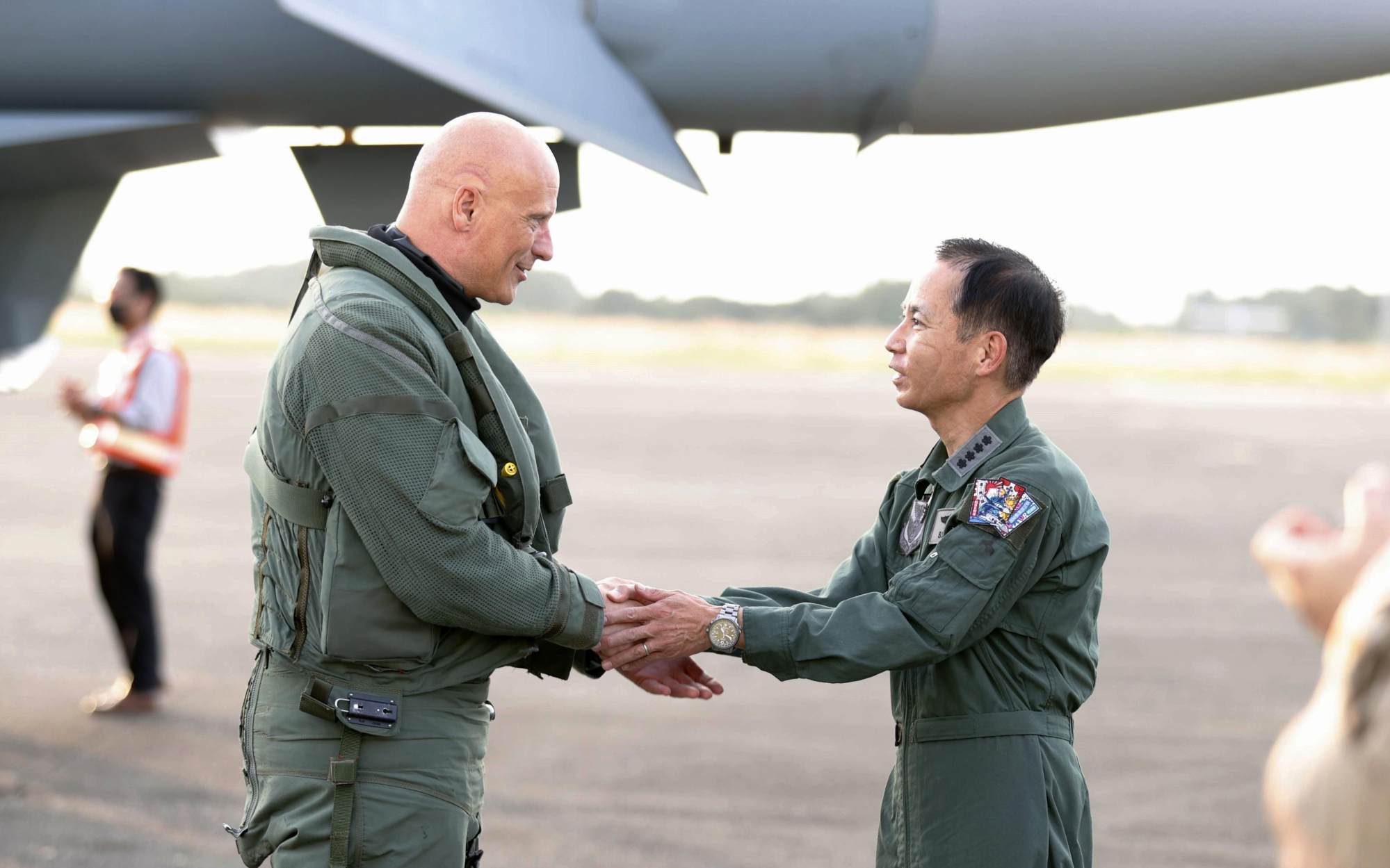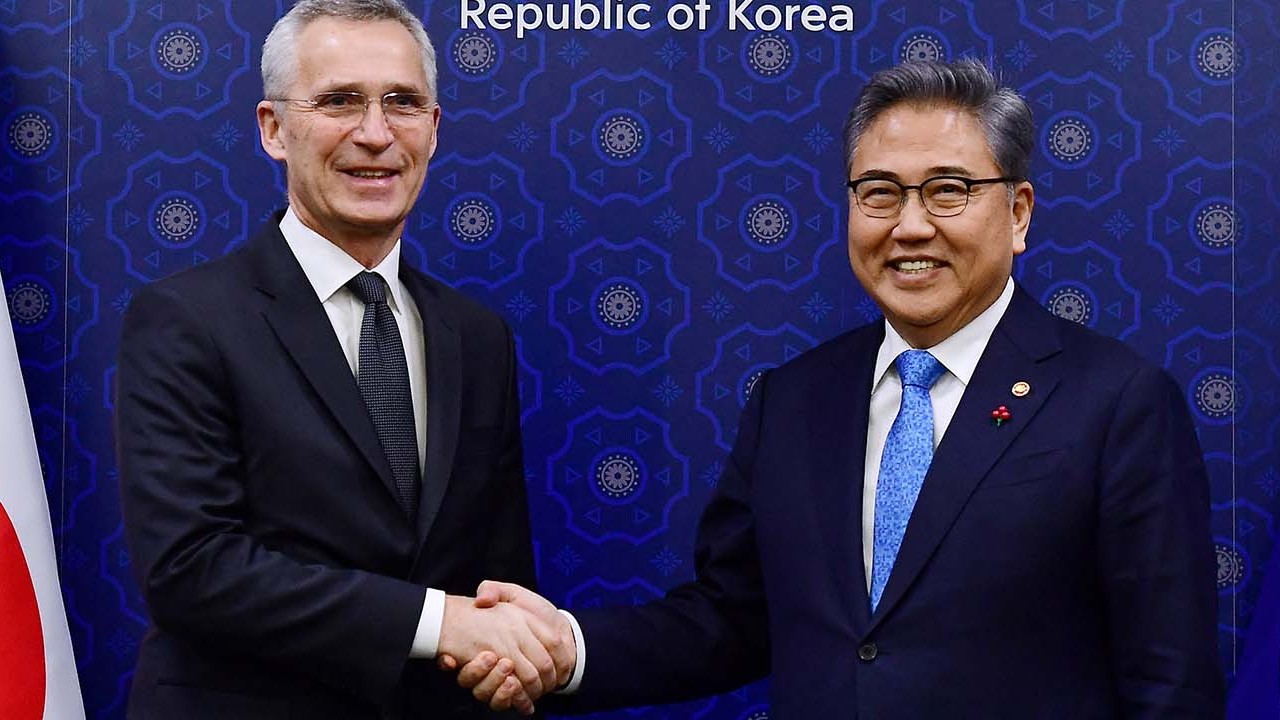
Nato’s Asia office adds ‘layer of cooperation’ for Japan but won’t result in its membership
- The new liaison office, Nato’s first in Asia, will facilitate consultations with Japan and key partners, and is an ‘important and positive development’ for the country
- China’s foreign ministry notes that ‘high vigilance’ is needed in the face of Nato’s ‘eastward expansion’ and that Asia should not be a battle arena for geopolitics
The new office will be Nato’s first in Asia, and will facilitate consultations between the 31-nation alliance and Japan amid growing challenges to peace and security in the region, the Nikkei Asia reported.
The single-person outstation will also be linked to other like-minded nations in the Asia-Pacific, including Australia, New Zealand and South Korea.
The suggestion for a liaison office in Tokyo was first put forward in late January, when Nato Secretary General Jens Stoltenberg visited Japan for talks with Prime Minister Fumio Kishida.
Nato cements ties with South Korea, Japan as security challenges mount
Analysts have emphasised that there is virtually no possibility of this initial arrangement developing into Japan formally joining Nato in the future, although the move is clearly designed to reinforce political and security ties among countries concerned at the growing military might – and unpredictability – of China, North Korea and Russia.
“North Korea is also an obvious concern as it continues to develop nuclear weapons and long-range ballistic missiles,” he added.
This is a way of formally establishing a firmer link with the US’ most important non-Nato ally
Robert Dujarric, co-director of the Institute of Contemporary Asian Studies at the Tokyo campus of Temple University, suggested that closer ties with the European members of Nato would enable Japan to explain the security threats and their potential impacts on the Asia-Pacific region.
“Japan wants to show that it is actively contributing to global security and … this new office [is] a way of ‘educating’ Europe about the threats that exist in this part of the world,” he said. “Initially it will only be a one-person office, but that is a positive step and as Japan already works closely in a number of areas with European Nato states, this will add an extra layer of cooperation.
“For Nato, China is also a concern, as are North Korea and, increasingly, Russia, so this is a way of formally establishing a firmer link with the US’ most important non-Nato ally,” Dujarric said.
In response to the Nikkei report, China said on Thursday “high vigilance” was needed in the face of Nato’s “eastward expansion”.
Mao Ning, spokeswoman for the Chinese foreign ministry, said Asia was a “promising land for cooperation and development and should not be a battle arena for geopolitics”.
“Nato’s continual eastward expansion in the Asia-Pacific, interference in regional affairs, attempts to destroy regional peace and stability, and push for bloc confrontation calls for high vigilance from countries in the region,” Mao said.

Japan already has long-standing operations with US forces, but in recent years has also hosted military units from a number of European Nato states. Air force units from Germany and Britain have conducted exercises with Japan’s Air Self-Defence Force, and detachments of ground troops have similarly taken part in manoeuvres, including amphibious landings.
Perhaps the greatest cooperation to date has been at sea, however, with a multinational task force, headed by Britain’s Royal Navy aircraft carrier HMS Queen Elizabeth, carrying out drills with the Maritime Self-Defence Force in 2021. Warships from France, Germany and the Netherlands have all visited Japan in recent years, with some taking part in efforts mandated by the United Nations to interdict the delivery of sanctioned items to North Korea.
Tokyo and Nato will also sign an Individually Tailored Partnership Programme ahead of the Nato summit in the Lithuanian capital of Vilnius in mid-July, the Nikkei reported, with the two sides keen to boost collaboration in combating cyber threats, exchanging information on dealing with disinformation and drawing up plans to counter emerging and disruptive technologies.

Nato already operates liaison offices at the UN headquarters in New York and the Vienna-based Organisation for Security and Cooperation in Europe, as well as in Ukraine, Georgia, Bosnia and Herzegovina, Kuwait and Moldova.
Japan also plans to shift its own mission to Nato, which is presently based in its embassy in Belgium, to an independent office. A dedicated Japanese ambassador to Nato will soon be announced.
Dujarric predicted that a number of governments in the region would “push back against this plan”, claiming that they were committed to peace and the plan would only destabilise the region.
Asia-Pacific leaders at Nato summit signals anti-China shift: analysts
But he said he believed that Japan actually joining Nato was likely a step too far.
“As well as raising questions under the Japanese constitution, it would require the complete restructuring of the alliance, as well as the Japan-US Security Treaty and a number of other regional agreements,” he pointed out.
“This is a relationship on the civilian, political side and it will not involve the integration of the allied command structure,” he said. “Japan will instead be more closely affiliated with these other nations and get many of the benefits, so joining – while it can never be ruled out entirely – may not be necessary.”
Additional reporting by Reuters


